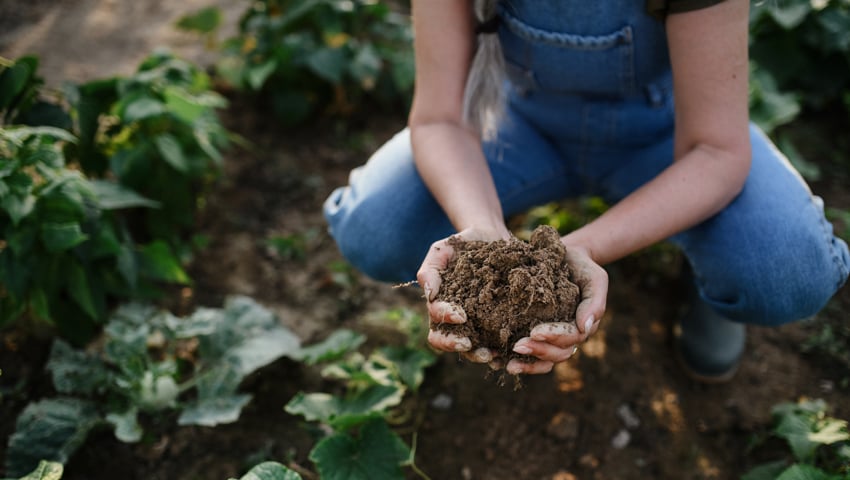ENVIRONMENT Secretary, Thérèse Coffey, has dismayed regenerative livestock farmers by claiming that the controversial weed-killer glyphosate is “critical for regenerative farming.”
Speaking at the NFU’s Back British Farming Day event at Westminster, the Secretary of State said, “The science is clear. The farmers need it. It is critical to regenerative farming. It is staying.”
Patrick Holden the founding director of the Sustainable Food Trust, was clear: “She’s got it wrong,” he said – while Clare Hill from Planton Farm in Shropshire said, “That’s entirely untrue.”
Holden continued, “Truly regenerative agriculture cannot be dependent on the use of a herbicide which kills all plants as this is at odds with restoring biodiversity. Weed control must be achieved by other means including judicious use of shallow ploughing, and crop rotations with fertility-building herbal leys. There is also evidence that glyphosate disrupts the soil microbiome and is potentially a carcinogen.”
Glyphosate is often used by farmers who are making the transition from mainstream agriculture to regenerative and agroecological farming systems, but the continued long-term use of chemicals is contrary to the principles of regenerating nature and working with nature’s processes.
Dorset regenerative dairy farmer, Tom Gregory, said, “I think there is potentially an argument for careful use of glyphosate in agriculture when regenerating land, but once that land has been regenerated, I don’t see how a farmer can claim to be farming regeneratively and using it.”
He said, “The routine use of herbicides in modern agronomy needs addressing, modern agricultural practices like optimal tillage, diversity within cropping (cover and cash) and a greater understanding of physical, chemical and biological properties of soil will help with this.”
Meanwhile, Hill explained that “If you understand what regenerative farming is, then it’s about farming in balance with nature and therefore if you need to continually rely on any chemical forever then it’s not a regenerative system – nature does not need glyphosate in order to function, so we’re not mimicking nature if we’re having to rely on it.”
In UK farming glyphosate is used in stubble fields for weed control before planting and before new crops start to appear. It is also used on some cereals and oilseed rape crops in the field to kill the plant, before harvesting the seeds (a process known as desiccation).
George Young from Curtis Farm in Essex has been an arable farmer for a decade. He said, “I think it’s a really difficult one. For certain types of agriculture you do need glyphosate – to say that you don’t and to specifically get rid of it, versus the whole wealth of other ag-chem that’s used, I don’t think it really makes sense. I think the other ag-chem is just as harmful.
“For me, I do think it should be avoided for desiccation: absolutely unnecessary, even crops like linseed and rape can be managed absolutely fine without desiccation.
“I do think for a zero-tillage approach to agriculture it makes sense – but I think there should be some more stringent controls and guidelines for how it is used, and ensuring you’ve got good buffers and all that other stuff that comes with good arable management.
“I do not think it is critical – for me organic practices are by far and away the better form of management. A lot of nuance – personally I’d love to see it not used, I think it’s dreadful like I think all agro-chemicals are dreadful for the land.”
Hill says that she recognises that there is an ongoing debate in regen about whether it is better to plough or to terminate a cover crop before putting cereal in. In “no-till” agriculture, glyphosate is currently used to avoid the need to plough, but at lower levels than in mainstream cereal production. “Both are soil disturbance to some degree,” said Hill, “but glyphosate is water soluble, it’s ending up in our rivers and ultimately, it’s ending up in us. We don’t know the unintended consequences in terms of human health.”
Gregory agrees. He said, “They are finding glyphosate in mother’s breast milk. What is regenerative about herbicides in breast milk?”
Hill concluded, “If you’re just trying to grow standard industrialised crops with a regenerative twist, you would still need glyphosate as part of the system, but if you’re looking to a system that truly and deeply regenerates then glyphosate is just not part of the picture.”
